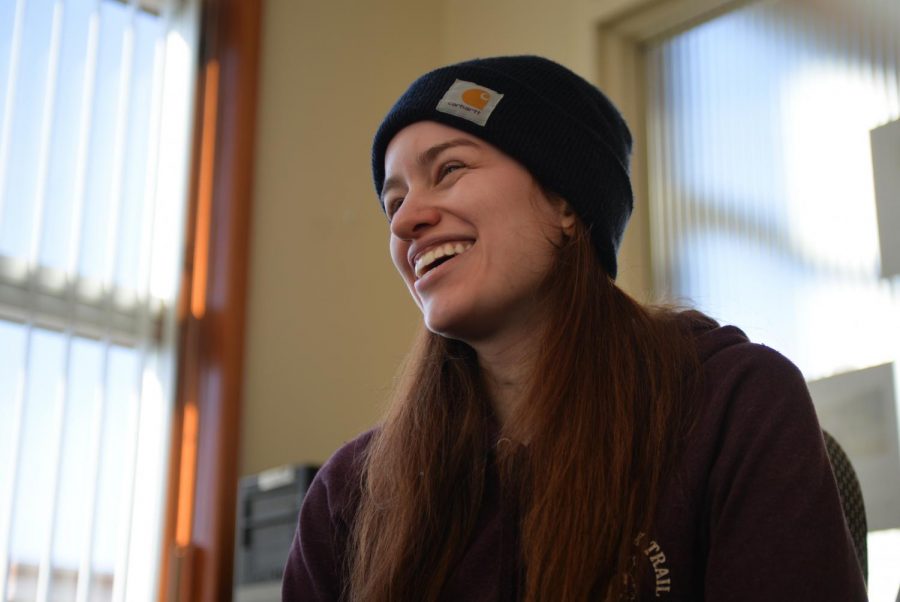Get ready, graduate school creeps up on students
Columnist experienced full spectrum of intense emotions when applying
BENJAMIN MICHEALIS | THE DAILY EVERGREEN
Senior criminal justice major Chelsea Parker discusses how students can find the right fit for graduate school on Jan. 30 in the CUE.
February 1, 2019
As unemployment rates continue to skyrocket and college degrees alone mean less, young adults today see advanced degrees as more and more necessary.
Many Cougs, including myself, plan to continue their education in graduate school, law school or other programs after graduation. But you have to get started earlier than you think.
Approximately 25 percent of all recent college graduates in 2017 continued school to receive another bachelor’s degree, a higher degree or a specialized certification, according to a study by the Bureau of Labor Statistics.
The WSU graduate program had over 4000 students in fall 2017. That’s approximately 7 percent of WSU’s on campus population according to WSU quick facts.
Getting to grad school, however, is a difficult and terrifying process full of tests, fees, begging and panic — lots and lots of panic. And of course you’ll need the perfect resume, personal statement and transcript or you can kiss your future school dreams good-bye.
Senior criminal justice major Chelsea Parker finished her applications early, followed all the right steps, and said she still felt immense stress during her application process.
“Last semester was probably the most difficult semester I’ve had because it’s very emotionally taxing going through the application process,” Parker said. “It’s very stressful dealing with self-doubt about if you’re making the right decision and thinking about how it’s really expensive if you’re making the wrong decision.”
This is not meant to deter, it is meant to warn. Start early. I started my law school journey when I changed my major during my third semester at WSU. That’s when I determined I could graduate a year early.
This meant I was halfway to my degree and hadn’t looked into law schools at all. Four months later I found out I would need to start prep immediately and take the Law School Admissions Test or (LSAT) in a few weeks. That test routinely requires six months of studying.
“GPA and the LSAT are big components of the law school application process and they’re what a lot of students come in concerned about,” said Kristi Denney, Pre-Law Resource Center director. “It’s a message that students need to get early so they can keep their GPA in mind from day one and plan out plenty of time to study for the LSAT.”
Students shooting for different branches of graduate programs will have to face similar hurdles, such as the Graduate Record Exams (GREs) or the Graduate Management Admission Test (GMAT). However, exam scores are not the only important aspect of the application.
“It’s about the whole package, not just the numbers,” Denney said.
The most surprising part of my application process was the range of emotions attached. First, I was terrified — I only had two months to prep for one of the hardest exams I’d take in my life. Then I received my unexpectedly high score and felt overly high confidence.
As I started to write my personal statement I was launched back to the hardest part of my life and felt sadness, fear and anger. A technical issue before I could apply added a level of frustration. And finally, I received the first phone call, informing me I’d been accepted. Then I felt transcendent relaxation and I realized I was really reaching my dream.
If you’re thinking of pursuing law school, the Pre-Law Resource Center is open 11 a.m. to 3:30 p.m. Mondays and Fridays and 11 a.m. to 4 p.m. on Tuesdays, Wednesdays and Thursdays in CUE 502. For information about other graduate programs talk to your adviser.









